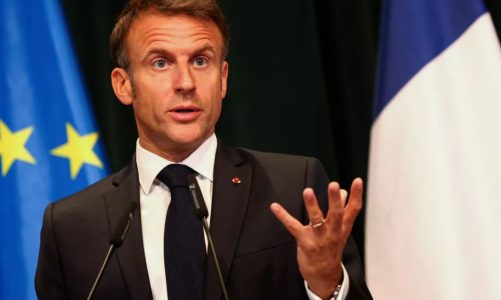
Russia seems to have become a safe haven for neo-Nazi groups or white supremacist groups. Recently, the US Department of State imposed sanctions on three people associated with the "Russian Imperial Movement" terrorist group. Analysts say the Kremlin uses these groups to wreak havoc in the United States and Europe, even as it falsely claims to be fighting neo-Nazis in Ukraine.
The "Russian Imperial Movement" is one of the terrorist groups operating in Russia that provides its members with paramilitary training, as seen in this propaganda video.
The US State Department in June imposed sanctions on three more people linked to the Russian-based terrorist group.
"They have kind of an interesting relationship with the Russian government. Their symbols and some of their propaganda is banned. And yet at the same time, they are allowed to operate, they are allowed to bring in like-minded neo-Nazis from other parts of the world," says Heidi Beirich, from the Global Project Against Hate and Extremism.
According to experts, these groups do not dare to destabilize the government of President Vladimir Putin inside Russia, but serve the interests of the Kremlin by inciting racial and ethnic unrest in Western democracies.
"There are many ways terrorists are trained. Recently, the conspiracy theory known as 'the great replacement' has spread. The killer in Buffalo, New York was also motivated by this theory. According to this conspiracy theory, white people are being deliberately replaced with people of color in different nations," says expert Heidi Beirich.
When groups of neo-Nazis and white supremacists cannot physically come together, they interact using internet platforms, which are not always policed. And Moscow, according to researchers, amplifies their voices.
“By using the Internet, they can spread their messages to billions of people in the world. Russia is extremely involved in creating media outlets creating disinformation," says Olga Lautman, from the Center for European Policy Analysis.
In this context, President Putin's claim that Russia militarily attacked Ukraine to de-Nazify its neighbor, as he says, is disinformation.
"This rhetoric is aimed at Russian citizens, because in Russia after the Second World War, Nazism is extremely negative. So if you blame your opponents or enemies as Nazis, this word can clearly explain why you need to take radical measures," says Alexander Verkhovsky from SOVA, Center for Information and Analysis.
The Azov Battalion in Ukraine, which has been repelling Russian forces since 2014, is often referred to by Russia as a neo-Nazi force. But human rights groups and Ukrainian officials say this is just Kremlin propaganda.
"There has been a lot of effort to reform the movement and remove any individual who holds these kinds of far-right beliefs," says Calum Farley, from the Center for Extremism and Anti-Defamation.
Experts say that attention should be focused on Russia, on the relationship this country has with neo-Nazi groups or white supremacist groups.
"Neo-Nazis, the various types of white supremacists, are the main threat in terms of domestic terrorism in the United States and many other countries. If the Putin regime provides more money and other materials to these groups, we will see more attacks," says Heidi Beirich, Global Project Against Hate and Extremism.
The Voice of America sent several requests for comment to the Russian authorities, but received no response./ VOA
Information source @BalkanWeb: Read more at: www.botasot.al


